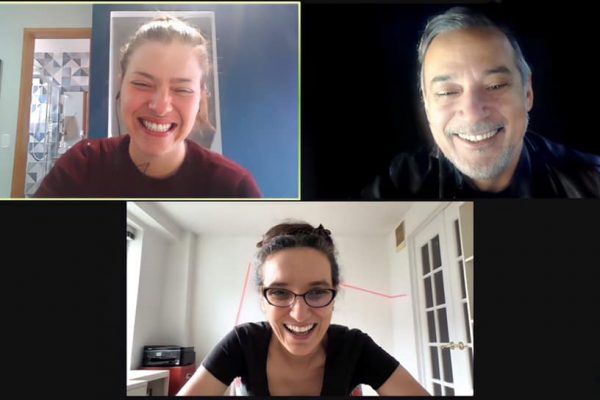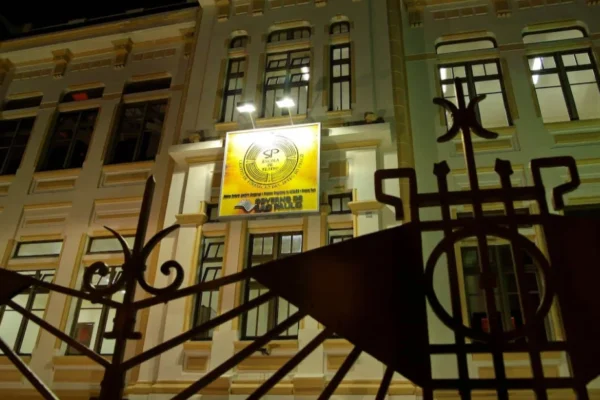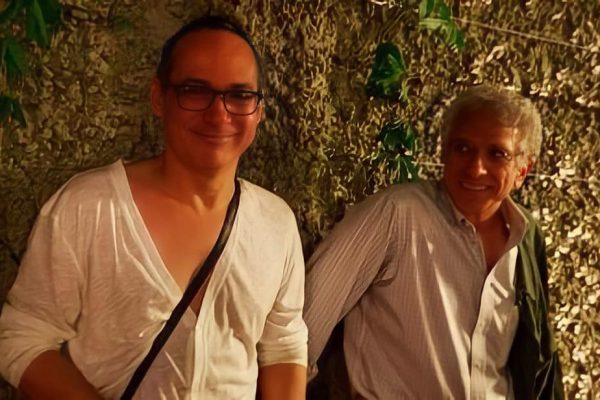Five commandments for the theater artist who wants to make a difference for society (ideas for a self help book…a flop, of course)
por Rodolfo García Vázquez
1) Stop looking at the mirror of artistic narcissism
We theater people love talking about theater and our accomplishments on the stage. Of course, this is our favorite subject. We talk so much about theater out of stage that we reached up to the point of going on stage and keep talking about theater. That’s not a rule, but it happens a lot. But what if we stopped talking about theater and asked your Afghan or Bolivian neighbour what his wife cooks for food in Sweden, for example? How could this change your life?
Or your bus driver…what is his favorite activity with his family? And what about any child? How many wonderful experiences you can have with him? Never forget: a prostitute can teach you more about life than 100 books.
2) Abandon all your dogmas about theater
We all, theater people, have our beliefs: theater should be this way, or that way. We must play this text of this cool writer, or invite that exceptional actor, or do this kind of political theater and do this and do that according to what someone already dead said. Theater must be….and then you have a long list of obligations.
But do yourself a favour: take 15 minutes everyday to think the opposite way. Deconstruct what you think you know about this ancient milenar art. Why not theater in this strange way? Or why not that silly other way? Is there a rule for what theater can be? Why not theater for babies, for example? Or theater in prisons?
Can theater be played by anyone? Or do you need to be an expert to play it? Can theater talk about this X (apparent) ridiculous subject? Why not? Can theater talk to other arts or social skills? Why not?
When you start asking these questions, theater becomes something much more free and full of surprises. And society thanks you for revigorating this old stage art.
3) Stop complaining about theater problems and just make it work
In theater, we are so used to speaking about theater problems: lack of money, the diminishing of funds for theater, small audience, low ticket sales….and so on. Our best subject is the theater crisis. It has been around since Tespis, probably.
Sometimes we get so much into our problems that we forget society has lots of much more important issues than ours.
But what if we took some minutes everyday to discuss about the real social problems. How is it going on? What are people in the streets sad about? Why do we have only this kind of audience? What are we not talking about?
There is a huge technological revolution going on right now. Society challenges now are completely different from 20 years ago. Genoma, bioengineering, internet, cyborg condition…And what are we bringing to stage right now? Is there a gap going on?
So we can start a real dialogue with real audiences.
4) Deconstruct all the truths you have got and rebuild them piece by piece
We all need truths to be able to live and construct our art. But sometimes our truths are just pure and plain prejudice. They don’t help us at all. We don’t know exactly why, but these truths get deep into our lives and destroy any possibility of communication with those who are different from us. Are criminals in jail evil, for example? Are they the bad guys? Should I speak to them? Should I think I can invent theater without them? And what about the bank owners, are they more or less evil than the people who are in jail? Why?
Brecht said something interesting once: “How bad is a bank robbery comparing to a bank foundation?” So should I not make theater with bankers either?
If we stop being so sure about our truths, we can rebuild them in a different way. More fair to humanity. More powerful to the art of theater.
5) Be naïf
Recover your curiosity, have fun, play like a child
Look at everything as if it was the first time, play with reality, ask, ask, ask…and have fun at any moment with theater and society. It can be a wonderful experience not to have all the ties and boundaries of the rest of society. As a matter of fact, that is what society expects from us, deep inside. It is eager to meet our bold curiosity, our outrageous capacity of daring, our playful freedom. If you on stage are not free, who else can be free in this country? – that is what our audiences hope everyday. That someone is free for them.
– Please be free at your art, and I can dream one day I can be as free as you are…. I need you to start dreaming a better self for me. – that is what they think, despite sometimes they look quite afraid of this freedom and try to put us under their control.




